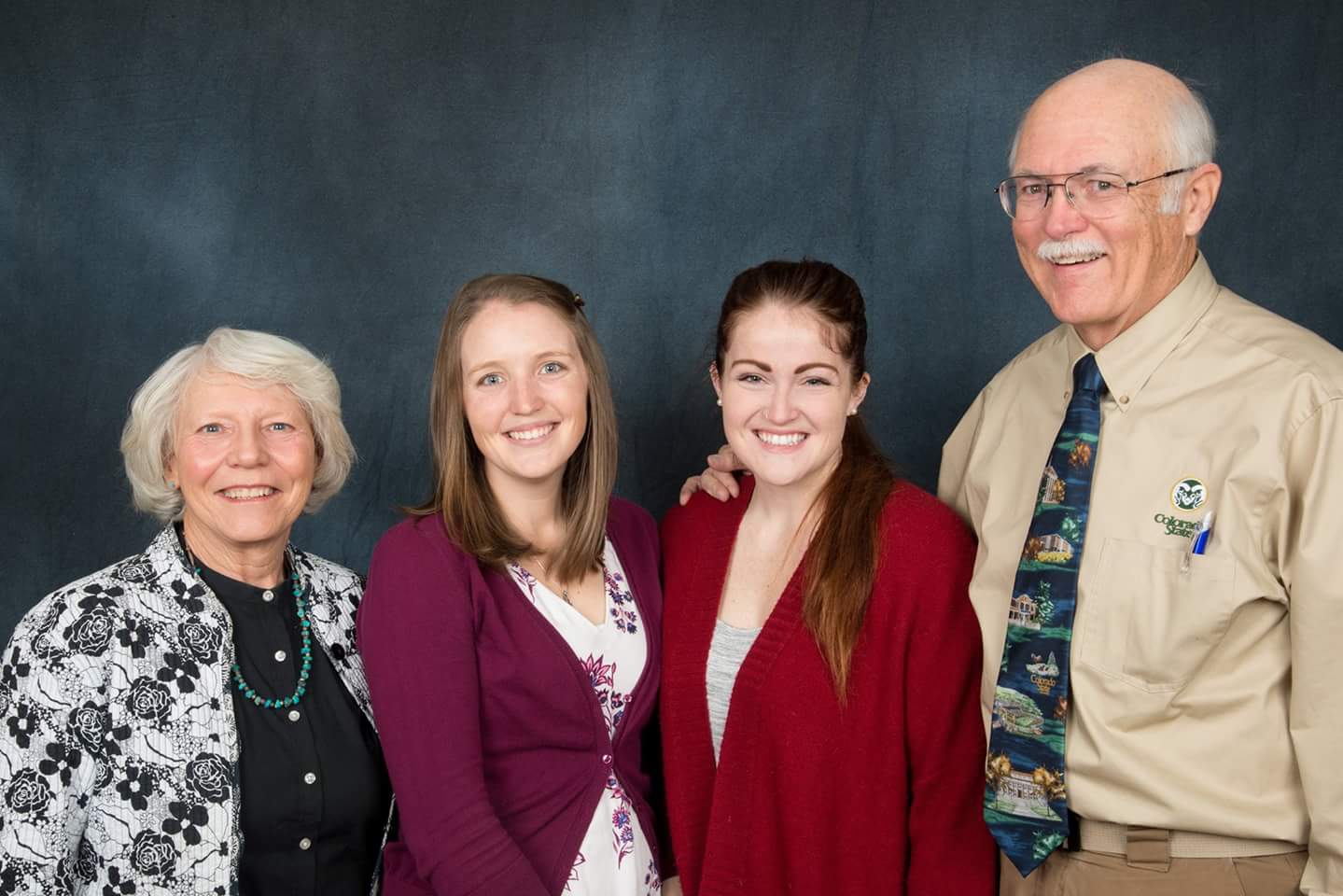
This summer Emily Fawaz (M.S., occupational therapy, ’18) will mentor occupational therapy students who are following in her footsteps at Colorado State University’s Early Childhood Center – and she’s well-prepared to do so. Like Fawaz, two of her proteges will receive the Jody Werner OT Clinical Education Scholarship that made her fieldwork experience possible. The scholarship, created by fellow CSU-OT alumna, Jo Karen “Jody” Werner (B.S., occupational therapy, ’70), prioritizes hands-on, creative learning alongside children that can serve OT graduates in careers with people of all ages.
Fawaz will lead the OT fieldwork experience at the ECC, the lab school in the Department of Human Development and Family Studies, which partners with the Department of Occupational Therapy and other CSU programs to prepare students for careers in early childhood. The scholarship, fieldwork, and her own personal experience have informed Fawaz’s practice and philosophy.
Mentee becomes mentor
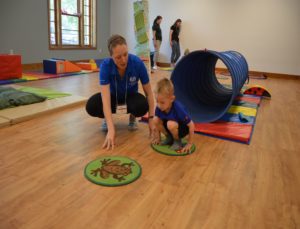
During 12 weeks in the summer of 2018, Fawaz gained experience with all age groups at the ECC, from infants to preschoolers, under the guidance of her faculty mentor, Lisa Fyffe (B.S. ’99; M.S. ’06; current Ph.D candidate). “It’s a unique setting to work with such a wide range of children in their natural environment,” Fawaz explained. The ECC provides care for children from infants through pre-school. “Being immersed with all of these children, you can see typical development in many ways, and hone in on areas where we can support development. There is an incredible amount of growth and development happening between infancy and preschool so there is a lot of opportunity to support that learning process in creative ways. The ECC environment encourages creativity, self-exploration, and autonomy that extends beyond the enrolled children to the undergraduate and graduate students working there as well.”
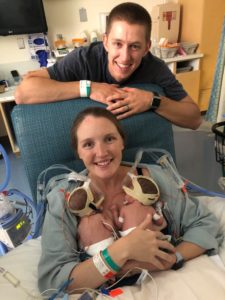
Fawaz’s pediatric OT skills have been useful both personally and professionally. After graduating, she gained additional clinical experience at Poudre Valley Hospital in Fort Collins in acute care and inpatient rehabilitation. She recently began as an early intervention therapist for Larimer County, providing in-home, family-centered coaching for families with infants and toddlers. Just a year after completing her fieldwork at the ECC and graduating, she gave birth at 28 weeks to identical twins. Four months in the neonatal intensive care unit at Children’s Hospital in Denver followed. She reached out to her mentor, as Fyffe had experience as an OT in a NICU. The two have maintained a strong connection since then.
This summer, Fyffe is finalizing her doctoral dissertation on her qualitative research on play-based learning and kindergarten transition, where she followed four ECC graduates through their kindergarten year. To do this, she needed to step back from clinical supervision. With Fawaz’s experience at the ECC and with her twins, who now have a younger sibling, Fyffe said, “Emily’s was the first name that came to mind. She listens to understand and is a great collaborator,” Fyffe explained. “She used the opportunity at the ECC to find her voice and uniqueness as an OT.”
Scholarships support experiential learning
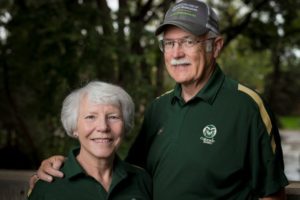
The fieldwork at the ECC is made possible for two students per summer by Jody and her husband Mike Werner (B.S., outdoor recreation, ’70). The couple cited their unforgettable experiences at CSU and their rewarding careers that followed as inspiration for creating two experiential learning scholarships. The Jody Werner OT Clinical Education Scholarship prioritizes OT fieldwork in early childhood settings, with a preference for the ECC, and the Michael and Jo Karen Werner Pingree Park Scholarship Endowment supports students in the Warner College of Natural Resources also engaged in hands-on experiential learning at the CSU Mountain Campus (formerly Pingree Park).
Learning while doing
Jody is grateful for mentors who believed in her and let her learn while doing. While Mike was stationed with the U.S. Air Force in England, Jody’s CSU education earned her access to her first pediatric OT setting. Even though she didn’t have direct experience with children, she got a job because of her American credentials. Her role allowed for time to learn along with the children she supported. The experience laid the foundation to later teach pediatric OT at the university level.
“The creativity occupational therapists can learn while assessing and treating infants and young children can be applied to patients of all ages,” she said. “You can use the skills you learned when working with 4- or 5-year-olds with an 87-year-old.” Understanding how to motivate a patient to work, and the creative energy that can fuel learning a new skill, are key to successful occupational therapy practice. Hence, the fieldwork experience at the ECC prepares CSU-OT students for a wide range of clinical applications.
The Early Childhood Center’s Reggio Emilia-inspired approach synchronizes well with the occupational therapy philosophy as it applies to early childhood. The two programs place the child at the center of the learning as a competent protagonist. Teachers, parents, and occupational therapists are learning partners with the child, and the environment is framed as the third teacher.
This perspective has proved valuable to Fawaz, both as a parent and therapist. Observing a child’s environment and listening to the entire family’s goals and priorities are vital to creating interventions that will work. “The best strategy isn’t always one that is going to check all boxes from a therapeutic standpoint,” she explained. “Engaging the child and the family or teachers in a team approach is critical to the success of intervention strategies.”
‘You’d better study up on dinosaurs’
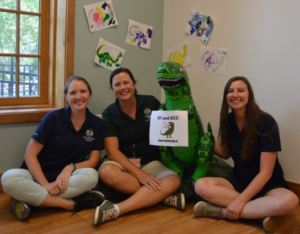
Preparation is also important to meeting patients where they are, in terms of skills, needs, and interests. If you’re working with young children, creating an activity based on dinosaurs, for example, “you’d better study up on dinosaurs,” Jody said, “because the children are dinosaur experts.” This type of thematic activity, often employed by OT fieldwork students at the ECC, “pushes therapists to be more creative to make it fun and meaningful. Play is meaningful for children,” she said, echoing the Reggio-Emilia play-based approach to education.
“What I think the ECC gives, with so much experiential learning, is how to learn,” Jody said. “You don’t have to know everything; but you know how to learn something new.”
Fawaz agreed. “At the ECC, you are given the freedom to interact with the children the way that is most natural for you, without someone watching over your shoulder. You’re not thinking about anyone observing, you are just engaging with the child.” In contrast, she said, “In acute care, your educator is in the room with you every moment for weeks,” she said. At the ECC, however, with Fyffe as her mentor, Fawaz was given the liberty to test her skills with flexibility and room for growth. “We could try things. Sometimes activities were a screaming success, and sometimes they fell flat. Lisa created a safe space to be creative and use and grow the skills we’d learned in class.”
She hopes the fieldwork students this summer learn some of her key takeaways from her experience: “We are not called to be encyclopedias with the right answer. The right answer for one child is different than the right answer for another child. There is beauty in that. Realizing you can’t know everything is important. If you go into meeting a child, or teacher, or family thinking you know the answer, you will miss the opportunity to invite them and what they find meaningful into the process.”
Perpetual support
Looking back, Fawaz is particularly grateful for the scholarship that supported her fieldwork and helped keep her student debt low. “It was a blessing and a gift beyond what I even knew at the time,” she said.
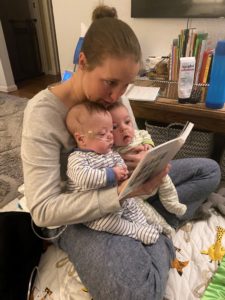
Fawaz’s twins are now healthy, active, and happy, and working on school readiness. She knows how to assess their development, and support transitions. Her personal and professional experiences have cemented her passion for working with young children. When Fyffe reached out for help coordinating fieldwork this summer, Fawaz jumped at the chance. Fyffe will re-orient Fawaz to the ECC over two weeks with the new fieldwork students, and then step back into an “on-demand” role as questions arise.
Jody and Mike enjoy meeting with Fyffe and the scholarship recipients before and after their fieldwork at the ECC when possible and are delighted that the scholarship has yielded not just practitioners, but new mentors. Seeing the success of the early recipients of the scholarship, including Fawaz, the Werners have endowed the fund so it will support students in perpetuity. Two students have benefited each year since 2017; the eleventh and twelfth recipients will work with Fawaz this summer. Alumni support through mentorship and scholarship will help them make the most of their fieldwork experience with the children, teachers, families, and ECC environment.
The Department of Occupational Therapy and Early Childhood Center in the Department of Human Development and Family Studies, are all part of CSU’s College of Health and Human Sciences.
Learn more about the Jody Werner OT Clinical Education Scholarship.